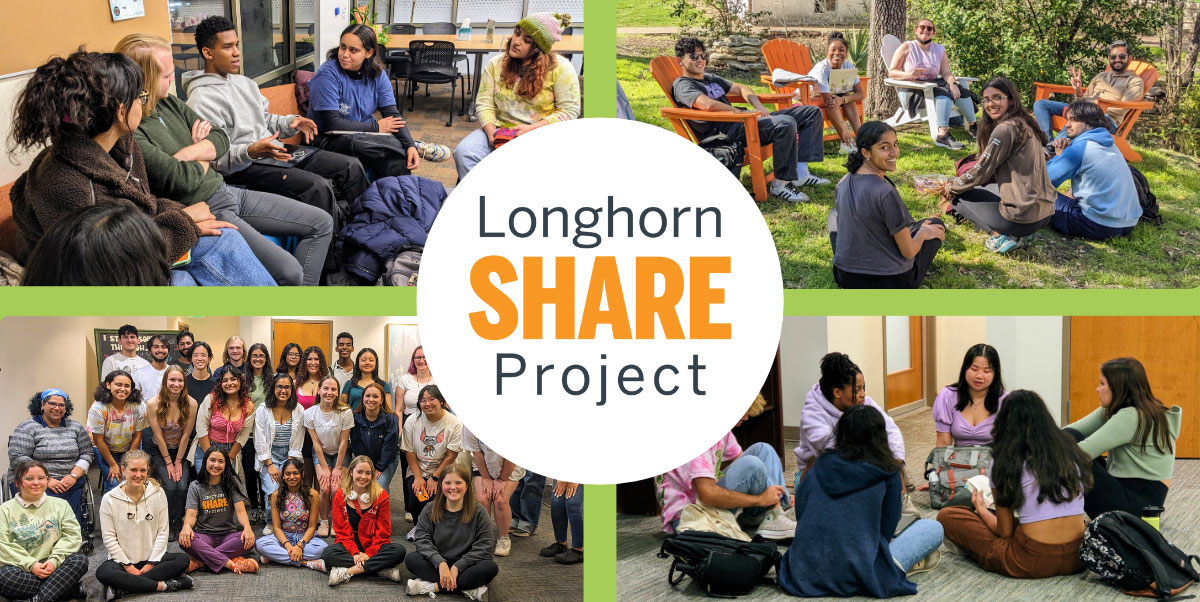Longhorn SHARE Project

Peer Support for Social and Emotional Wellness
Longhorn SHARE (Support, Healing, Active listening, Reciprocity, Empowerment) Project is a social connection and mental health peer support program created by and for UT students. “Peer support” can occur in any setting where two or more people with a shared experience or challenge intentionally give and receive support. At UT, our trained SHARE Support Specialists facilitate welcoming, non-clinical groups and other opportunities on campus where students can share wisdom and encouragement, validate each other’s struggles, find community, and grow together.
What We Offer
SHARE Communities: Find Your People
I felt so at home being a part of my SHARE Community. I felt fully seen and cherished (and able to be myself) for the first time in a long time, and it was so meaningful.

SHARE Communities are students-only open groups on a range of topics where peers with similar interests, concerns, or wellness goals can share support and build relationships each week. SHARE Communities combat loneliness and support social self-efficacy by giving students a place to let down their guard, feel seen and valued, and directly benefit others going through similar struggles.
All SHARE Communities are created and facilitated by peer SHARE Support Specialists and are open to all UT students at any time during the Fall and Spring semesters.
SHARE Circles: Bring SHARE to Your Group
I enjoyed being vulnerable with my classmates and learning that while everyone is struggling in their own ways, they are finding ways to cope.

SHARE Circles give student organizations, student leaders, classes, and other groups a chance to learn more about each other through opening up about common challenges or goals with the friendly guidance of a SHARE facilitator. SHARE Circles are ideal for groups hoping to build community, mutual understanding, and active listening skills.
Our facilitators prepare Circle questions to fit a specific theme requested by each group. Popular themes have included imposter phenomenon, healthy relationships, stress management, social comparison, career anxiety, and more!
Student Leadership Opportunities
The Longhorn SHARE Project accepts applications for each new cohort of SHARE Support Specialists once a year in October. Admitted students must commit to participate for a minimum of three semesters including the training semester in the Spring.
SHARE also hires a Graduate Student Assistant each academic year, and our staff often supervise undergraduate and graduate interns enrolled in academic research and internship courses.
Support Our Work
If you believe in the work we’re doing, consider supporting us with a donation! We can accept gifts of any amount online through UT’s giving site under the designation “Longhorn Wellness Center”. Just add a note to indicate that you’d like your gift to benefit the Longhorn SHARE Project! Read more about our needs and impact.
SHARE Stands For:
More Information
To learn more, check out our Frequently Asked Questions or email longhornshareproject@utexas.edu



